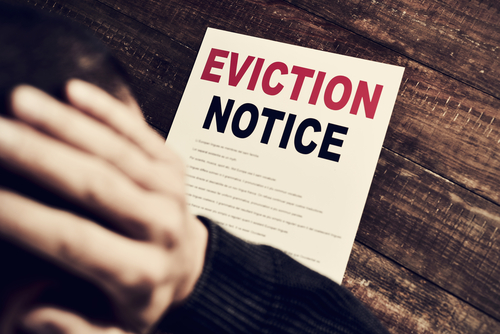HOMENEWS & INSIGHTS
Court ruling confirms landlords late to issue Gas Safety Register can evict via ‘No-Fault’ procedure
Many people think that all a landlord has to do to evict a tenant is to give them two months’ notice. Anybody that has been through this experience is likely to understand that it is not necessarily that easy, although a recent appeal court decision has gone in landlords’ favour.
What was the issue?
In 2018, a County Court case stated that if the landlord did not provide the tenant with the Gas Safety Register (GSR) before the tenancy began, it would not be possible for the landlord to ever rectify this. This meant that the landlord would be potentially eternally prohibited from using the section 21 (or “no fault”) procedure.
Being in the County Court, this was not binding on other cases. Landlords and letting agents (and those, like us, with an interest in landlord & tenant law!) were waiting for the position to be clarified.
What has changed?
Landlords can breathe a sigh of relief, as Trecarrell House Ltd v Rouncefield [2020] EWCA Civ 760 has confirmed that it will no longer be impossible to serve a valid s.21 notice should the gas safe certificate not be served in time. To remedy this breach, landlords can now provide the tenant with the GSR before serving a s.21 notice.
What about the other penalties?
Apart from clarifying the position on providing the tenant with the GSR, Trecarell House has also made certain other points very clear. It is now more important than ever for landlords to be aware of other potential pitfalls.
Trecarrell House reinforced that if the GSR is provided after the s.21 notice is served, the notice will definitely be invalid. Tenant support organisations will certainly be on the lookout for mistakes such as this.
The prohibition on serving a s.21 notice is not the only penalty landlords can face if they do not follow the various rules governing how rental properties must be managed. As the court said in Trecarell House, a bar on serving a s.21 notice “is not the primary sanction for non-compliance.”
It may now be more likely than ever that landlords will be pursued for non-compliance with the relevant laws, such as the Tenant Fees Act and the Fitness For Human Habitation Act. Penalties under these range from fines to potential criminal offences, and courts may be more minded to impose these if the s.21 procedure is now more accessible for landlords.
If you or your business needs any assistance in navigating the issues of starting a residential tenancy or recovering possession of a residential property, please contact our team today and we will be happy to help
Share article
Our offices
Contact Us
5 Poole Road
Bournemouth
Dorset
BH2 5QL
Tel 01202 377800
9 Poole Road
Bournemouth
Dorset
BH2 5QR
01202 377800


